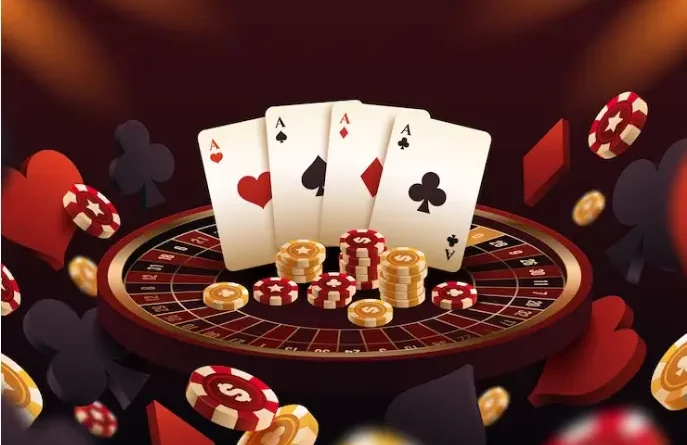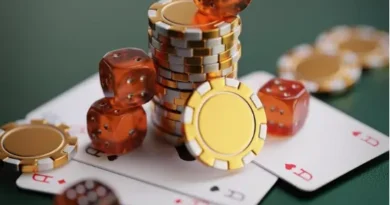Spinning Fortunes: Roulette Strategies for Strategic Wagering
Roulette, a classic casino game that embodies elegance and chance, offers players a captivating experience as the iconic wheel spins and the ball dances across the numbers. While roulette is fundamentally a game of luck, employing strategic roulette strategies can enhance your gameplay and potentially increase your odds of success. From understanding different betting systems to managing your bankroll effectively, let’s delve into the world of roulette strategies.
1. Know Your Roulette Variants: European vs. American:
Before diving into strategies, it’s crucial to understand the two primary variants of roulette: European and American. The key difference lies in the number of pockets on the wheel.
European Roulette: Features a wheel with 37 pockets, numbered 0 to 36. The absence of a double zero (00) gives European roulette a lower house edge, making it a more favorable option for players.
American Roulette: Includes a wheel with 38 pockets, numbered 0 to 36 and an additional double zero (00). The presence of the double zero increases the house edge, impacting the overall odds for players.
Strategic players often prefer European roulette due to its lower house edge, providing a foundation for more effective betting strategies.
2. Martingale System: The Progressive Betting Approach:
The Martingale system is a popular roulette strategy that revolves around progressive betting. In this system, players double their bet after each loss, aiming to recover previous losses and secure a profit equal to the initial wager. The principle is based on the belief that a winning spin will eventually occur, offsetting previous losses.
While the Martingale system can be effective in the short term, it comes with risks. Extended losing streaks may lead to significant bets, and reaching table betting limits or encountering a long series of losses can impact its practicality.
3. Fibonacci System: A Sequence of Numbers:
The Fibonacci system is a more gradual progressive betting strategy based on the Fibonacci sequence—a series of numbers where each number is the sum of the two preceding ones (e.g., 1, 1, 2, 3, 5, 8, 13, and so on).
In roulette, players apply the Fibonacci sequence to their bets. After each loss, the next bet is determined by adding the two previous bets in the sequence. The goal is to recover losses with a single win.
While the Fibonacci system offers a more measured approach than the Martingale, it still requires caution, particularly in the face of extended losing streaks.
4. Labouchere System: Customizing Your Betting Strategy:
The Labouchere system, also known as the cancellation or split Martingale system, involves creating a customized sequence of numbers that represent desired profit. Players start by writing down a sequence of numbers, such as 1, 2, 3, 4. The sum of the outer numbers determines the initial bet.
When a bet wins, the outer numbers are crossed off. If the bet loses, the amount lost is added to the end of the sequence. The process continues until all numbers are crossed off, achieving the desired profit.
The Labouchere system provides flexibility in creating personalized betting sequences but requires discipline in sticking to the strategy.
5. D’Alembert System: Balanced Betting Progression:
Named after the 18th-century mathematician Jean-Baptiste le Rond d’Alembert, this system is based on the idea of balance. In the D’Alembert system, players increase their bet by one unit after a loss and decrease it by one unit after a win.
The theory is that over time, wins and losses will balance out, and the player will achieve a net gain. The D’Alembert system is considered less aggressive than the Martingale and Fibonacci, making it suitable for those who prefer a more conservative approach.
6. The James Bond Strategy: A Number-Centric Approach:
Inspired by Ian Fleming’s famous character, the James Bond strategy is a combination bet that covers a significant portion of the roulette table. Here’s how it works:
Place $140 on the high numbers (19-36).
Place $50 on the six-line bet covering 13-18.
Place $10 on zero as insurance.
This strategy covers a wide range of numbers, providing multiple ways to win. However, it’s essential to be aware of the potential losses if the ball lands on the low numbers.
7. Biased Wheel Hunting: Exploiting Imperfections:
While less applicable in modern, well-maintained casinos, some players historically sought out biased wheels—wheels with imperfections that caused certain numbers to come up more frequently than statistically expected. These imperfections could result from wear and tear or manufacturing defects.
Advancements in wheel manufacturing and casino maintenance have reduced the prevalence of biased wheels, making this strategy less viable. However, it highlights the historical practice of seeking out favorable conditions.
8. Bankroll Management: Protecting Your Capital:
Amidst the various betting strategies, effective bankroll management is a universal principle for roulette players. Establish a budget dedicated to your roulette sessions, set win and loss limits, and adhere to them. Avoid chasing losses or making impulsive bets that exceed your predetermined limits.
Conclusion: Blending Strategy with Chance:
Roulette strategies add an intriguing layer of depth to the game, allowing players to approach the wheel with more than just luck on their side. From progressive betting systems to number-centric approaches, each strategy brings its own set of advantages and considerations.
It’s important to recognize that no strategy can guarantee consistent wins in a game where chance plays a significant role. The key lies in finding a strategy that aligns with your risk tolerance, understanding the nuances of the game, and embracing the exhilarating blend of strategy and chance that roulette offers. Whether you prefer the measured progression of the Fibonacci system or the balanced approach of the D’Alembert system, exploring different strategies can enhance your enjoyment of this timeless casino classic.




